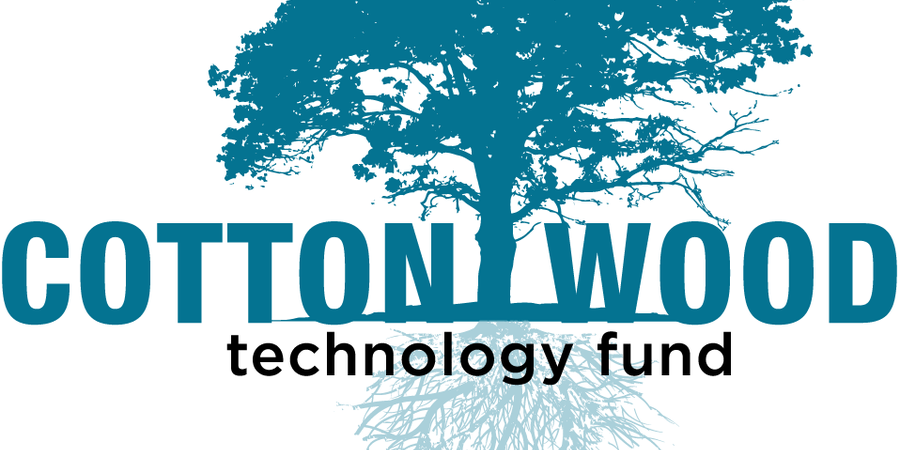Eindhoven already owns foundational semiconductor tech including photolithography. Now, Europe’s deep-tech hub is pushing into artificial intelligence, which has the potential to mind-meld human brains and computers.
Why? Money. Lots of it.
AI – though it’s still rudimentary technology – is a multi-trillion euro global business that touches everything from transportation and commuting to healthcare to e-commerce.
To play in that sandbox, High Tech Campus Eindhoven officials just announced a new AI Innovation Center in collaboration with electronics and semiconductor multinationals Philips, based in Amsterdam, and Eindhoven-based ASML, NXP and Signify, an initiative “to drive the application of artificial intelligence technologies by companies and organizations in the Brainport Eindhoven region.”
Along with the announcement, Prof. Emile Aarts, dean of mathematics and computer science at Technical University of Eindhoven, gave a two-part presentation, a Masterclass in AI in Business, which you can see in full here on Youtube.
Aarts’ presentation made clear that China and the United States are, as usual, lightyears ahead. Especially the U.S., where IBM’s Watson and Deep Blue were the first modern proofs of an ancient concept – that machines can be taught to “think.”
IBM might have pioneered machine learning, but Aarts has explored how 21st century companies are turning machine learning/AI into gold.
• Alibaba, a 20-year-old Chinese company which had $78 billion in 2019 top-line revenue, has built the world’s biggest AI discovery center, DAMO Academy, with 18 locations across the globe. At DAMO, they hire the most talented engineers, “turn them loose and make them happy,” Aarts said. “This is the way this company is doing its business. It’s really amazing.”
In pursuit of becoming the first $1 trillion company by 2030, Alibaba is focused on predictive behavior analytics, “understanding the customers’ needs and behavior,” Aarts said.
• Google, one of the first companies to figure out how to make money with search engines, had 2019 revenue of more than $160 billion, and a net income of $30 billion, a 20-percent margin that gets totally reinvested in technologies such as artificial intelligence, Aarts noted. Google is spending $30 billion on AI research.
• It’s hard to remember that Amazon is only a 25-year-old company. But it’s a 25-year-old company with $281 billion in 2019 top-line revenue and 11.6 billion in net income. Amazon is focused on the predictive capabilities of AI for everything from making its e-commerce businesses more efficient to improving its Alexa and Echo devices, Aarts said. “They are into understanding the customer in terms of his or her needs; in terms of his or her behavior ….”
• Apple really thinks future computing will happen with Apple devices and will make sure each device has sufficient computing power to do what consumers want to do in a secure terminal … your phone, Aarts said.
While Americans and Chinese have looked at artificial intelligence as an enhancement for online user experience and other digital services, Europeans have focused more on practical application. AI is most crucial in autonomous vehicles, and Europe does have a lead in that.
Aarts used BMW as an example of a company building automobiles, such as the i8, incorporating AI. This prototype uses IBM’s Watson cognition technology and the Blue Mix cloud platform with BMW’s ConnectedDrive technology to monitor and analyze driver behavior, he said.
So where does Eindhoven figure in all this? As part of the announcement of the artificial intelligence center on campus, Sebastiaan Laurijsse, Transformational Global Leader with NXP, remarked that “It all starts with silicon.” Obvious, yes. But it also succinctly sums up why Eindhoven has a chance to excel in this AI competition once it really gets started in Europe. Which it really hasn’t.
By the way, you didn’t hear this from us, but there will be more big news coming about AI efforts in Eindhoven … same bat time, same bat channel. And in the future, we’ll talk with the players so we can get an honest evaluation of Eindhoven’s potential to capture this technology the way ASML and NXP have captured their respective semiconductor sectors.
More about NXP
NXP doesn’t get the same sort of global pub as ASML, but both are always focused on what comes next in technology. In NXP’s case, that’s developing AI components and systems where people work and live – the “edge” of computer networks in tech talk.
From the NXP website:
NXP is a vanguard in the AI revolution with a portfolio of microcontrollers (MCUs) and processors optimized for machine learning applications ‘at the edge’ of networks, including thermostats, security systems, car sensors, robots and industrial automation and other devices, thereby making them not only intelligent but faster, more flexible and more secure.
Our insiders have forwarded several NXP news releases about the company’s AI focus including:
• NXP just signed a deal 17 November with Amazon. NXP will use Amazon Web Services edge and cloud data storage with its new S32G vehicle network processor “for service-oriented gateway,” according to a media release. What we think that means is, NXP provides the chip and Amazon provides the analytics to optimize electric car performance including updating software and maintenance monitoring. The release is in indecipherable tech jargon, but there is a webinar scheduled for 19 November that might offer some insights for us non-tech folk.
• AI Ethics Institute. The concern about artificial intelligence is that it intrudes on privacy at least and at worst, could be weaponized. NXP just published a white paper assuring the company will observe all ethical guidelines when it comes to algorithm transparency and privacy.
• MBS. NXP landed a huge order to supply Volkswagen with its battery management system. VW projects it will sell at least 15 million battery-pack vehicles by 2028 times about $800 per NXP MBS unit, totaling potentially a lot.
• NXP also is doing quite well, thank you, with its UWB products. Ultrawide Band Technology can be integrated into, for example, keys that allow people to lock and unlock doors with their mere presence, and allow home automation systems to follow their owners intuitively from one room to another so they spend less time searching for misplaced items.
Good news about NXP isn’t just good news for Eindhoven. NXP employs somewhere on the order of 30,000 people in 35 countries, including operations in American tech centers such as The Valley and Austin.

Cottonwood Technology closes Fund III
This small New Mexico-based VC isn’t big enough to make our list of venture capital firms active in Europe, but its representatives are here and they are investing. Cottonwood officials just announced they’ve closed their third fund. “This first close puts it on track to reach its target final close of 75 million euros to 100 million euros with 25 million euros currently on hand.
Cottonwood Technology Fund started in 2010 in the United States and opened an office in the Netherlands in 2014.
They’re looking to invest in companies that have IP and hard science patents in robotics, photonics, telecom, optics, automotive, clean energy, sensor technology, high-tech health, nanotechnology, chemicals and advanced materials.
SendCloud closes 12.6 million euro B round
This is one of the first scaleups we saw in Eindhoven that evoked the phrase “unlimited potential.” SendCloud, an e-commerce shipping platform with proprietary software used by 15,000 companies, was – circa 2015 – in a small office in the Tongelre neighborhood across the street from an Action store and a Turkish restaurant on a busy commercial intersection. Now, the company has its own building in Eindhoven as well as offices now in Munich.
SendCloud is in the news after raising 12.6 million euros in its Series B round mostly from AXA Venture Partners, the Paris-based investment arm of global insurance and financial services giant AXA.
The plan is to use the capital injection to add 200 new employees for a workforce of more than 400 people. What’s amazing about this is that SendCloud was only founded in 2012.
New apartments coming to Helmond; tower planned for centrum

Even in a pandemic, the housing market remains robust. Especially in expat-centric cities such as Eindhoven. Demand seems to be strong and developers are still in the game. Holland2Stay just announced its first project in Helmond is coming on-line: The Castle.
Located opposite of Helmond’s actual castle, a not so beautiful former office building has been repurposed into 57 apartments. “The apartments will be fully furnished with high quality furniture and high level of finish. Tenants will be able to park their bikes and cars in the underground parking,” according to a media release.
Helmond is just east of Eindhoven, but very much in the Eindhoven metro area and near Nuenen, which has lots of great restaurants and a Van Gogh center.
The Castle will start accepting applications next month. You can see the details here.
On the drawing board is a huge new tower in the center of Eindhoven next to Holland2Stay’s existing Onyx and Victoria Park on Mathildelaan. The Victoriatoren will have 450 units in a skyscraper that looks to be pushing 25 stories, judging by the artist’s rendering at right. The tower is projected to open in 2021, but our experience is, city government and the developers will still be wrangling over whether Eindhoven needs yet another giant residential tower on its skyline.
We vote “yes.”
By the way, we’ve stayed in Holland2Stay properties including Victoria Park, and they do a good job of property management.
Quick hits:
• IBM is holding a Cloud and AI Summit on 19 and 29 November. You can see the details here. This is, of course, a virtual event.
• Innovation Origins has a good post about Salvia BioElectronics, which is developing a new technology to treat migraine headaches. The startup uses neurostimulation – electrical pulses to reset the nervous system. It’s technology like this that has the potential to boost Eindhoven’s medtech sector.
• Our friend Menke Steenbergen is in the news. Menke, a veterinarian by training, founded IPOS, a tech startup that used sensors to collect data about how horses are performing both to monitor their health and to improve rider performance. It’s amazing technology and our Tier 1 Tech talent management subsidiary has plans to take this outstanding entrepreneur to the States for additional funding. Read the latest here on the Eindhoven Dagblad.
• American logistics company XPO is entering the Dutch market with a new facility in the Eindhoven area, where they’re hiring 100 people.














